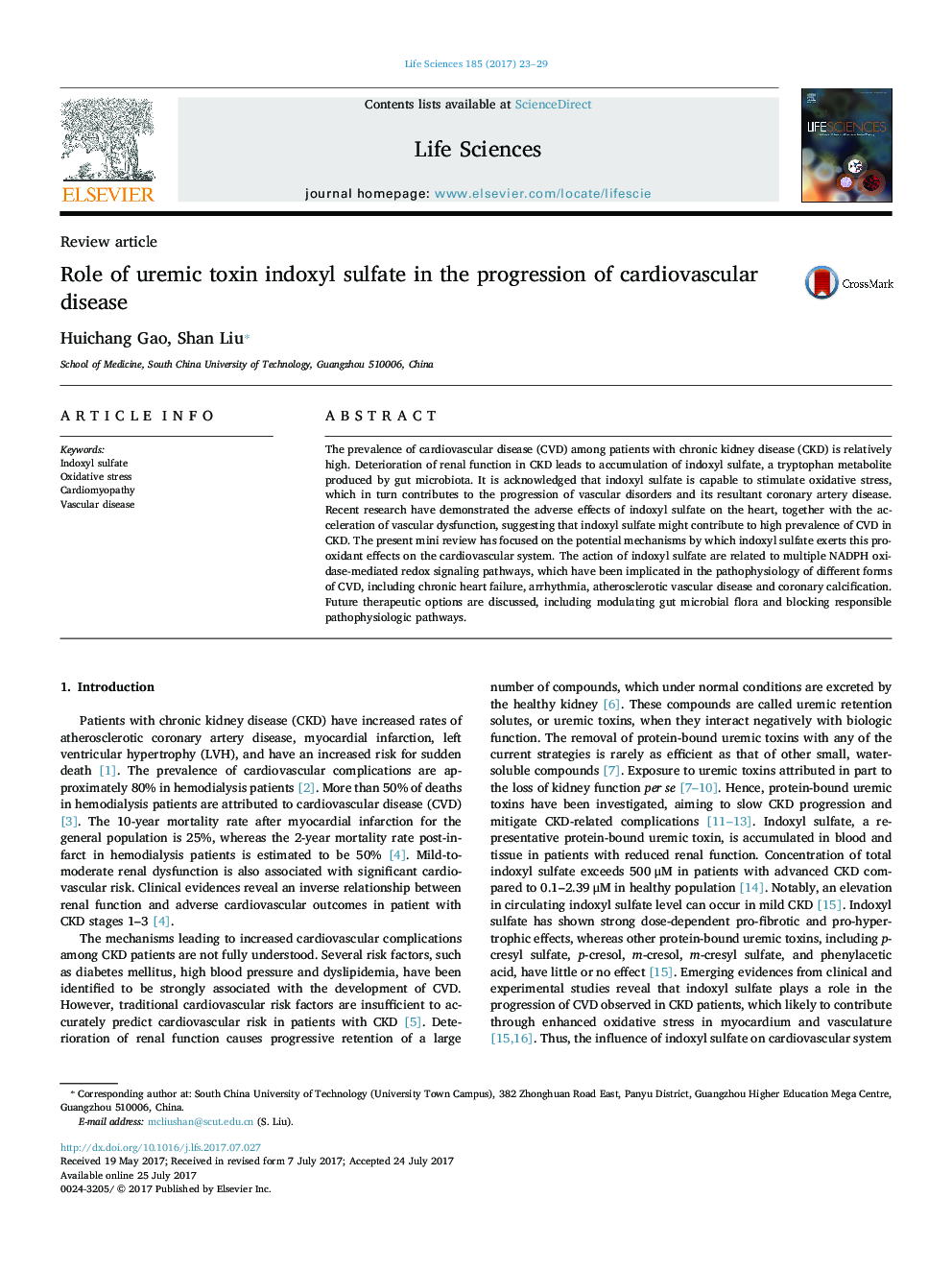| Article ID | Journal | Published Year | Pages | File Type |
|---|---|---|---|---|
| 5556734 | Life Sciences | 2017 | 7 Pages |
The prevalence of cardiovascular disease (CVD) among patients with chronic kidney disease (CKD) is relatively high. Deterioration of renal function in CKD leads to accumulation of indoxyl sulfate, a tryptophan metabolite produced by gut microbiota. It is acknowledged that indoxyl sulfate is capable to stimulate oxidative stress, which in turn contributes to the progression of vascular disorders and its resultant coronary artery disease. Recent research have demonstrated the adverse effects of indoxyl sulfate on the heart, together with the acceleration of vascular dysfunction, suggesting that indoxyl sulfate might contribute to high prevalence of CVD in CKD. The present mini review has focused on the potential mechanisms by which indoxyl sulfate exerts this pro-oxidant effects on the cardiovascular system. The action of indoxyl sulfate are related to multiple NADPH oxidase-mediated redox signaling pathways, which have been implicated in the pathophysiology of different forms of CVD, including chronic heart failure, arrhythmia, atherosclerotic vascular disease and coronary calcification. Future therapeutic options are discussed, including modulating gut microbial flora and blocking responsible pathophysiologic pathways.
